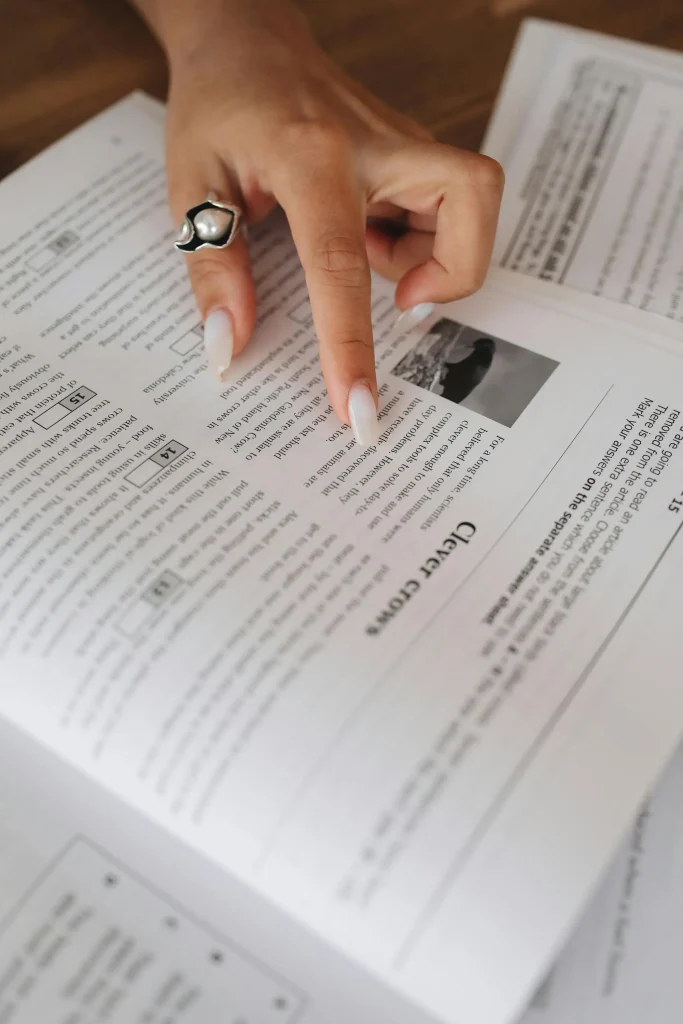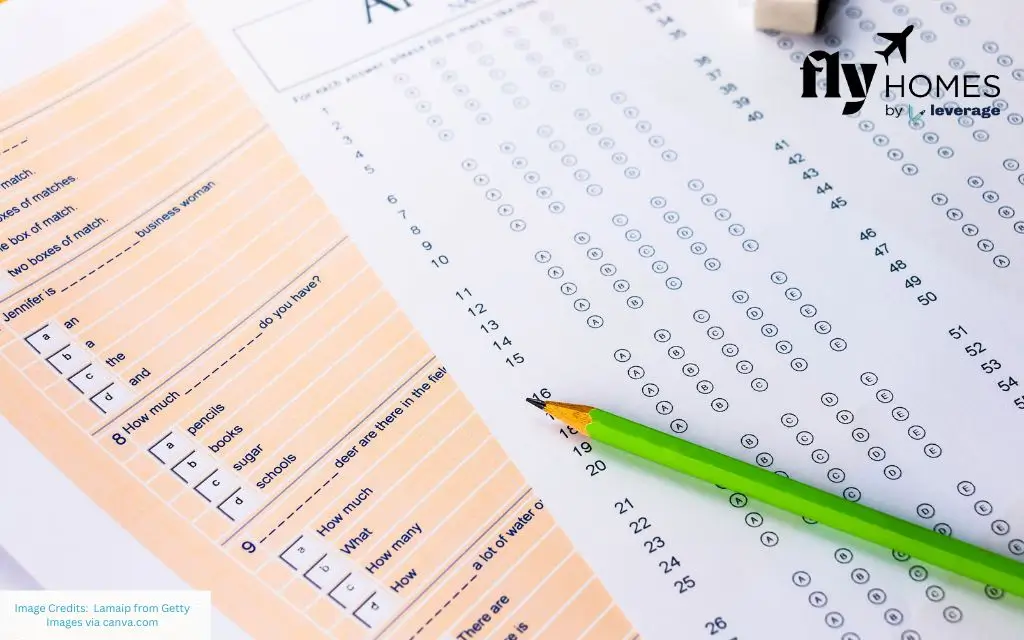If you’re planning to study abroad, the IELTS exam is one of the most important steps in your journey. It is accepted by universities in countries like the USA, UK, Canada, Australia, and New Zealand. But before you register, you need to understand the IELTS exam fees in India and the other costs involved.
Many students worry about how much IELTS will cost and whether they need coaching. Don’t worry! In this guide, we’ll break down the IELTS exam fees in India, coaching costs, and other important details to help you plan your budget smartly.
Table of contents
- What is IELTS Exam?
- IELTS Exam Fees in India
- IELTS Exam Fees in India 2025 – By City
- Additional Costs to Consider for the IELTS Exam
- How to Pay the IELTS Exam Fees in India?
- IELTS Course Fees in India
- IELTS Exam Syllabus
- IELTS Exam Pattern
- How to Register for the IELTS Exam in India?
- How to Prepare for the IELTS Exam on a Budget?
- Tips to Save on IELTS Exam Fees
- FAQs
What is IELTS Exam?
The IELTS (International English Language Testing System) is a popular test that checks your English skills, which are required for studying abroad, working, or migrating. It measures your abilities in reading, writing, listening, and speaking. You can take the IELTS on a computer or with paper-based testing. This test is recognized worldwide and is essential for moving to countries like Canada, the UK, Australia, and New Zealand. The exam is held at over 1,400 test centers across 56 countries. To register for the IELTS exam, you can follow the step-by-step instructions in our guide on How to Register for the IELTS Exam.
IELTS Exam Fees in India

If you’re planning to study abroad, taking the IELTS exam is often a crucial step. The IELTS exam fees in India vary depending on the test type and format. Whether you are applying for higher education, work, or migration, knowing the exact fees helps in financial planning. Here’s a detailed breakdown of the IELTS exam fees in India:
| IELTS Test Type | Exam Fee (INR) | Purpose |
| IELTS Academic (Computer-based) | INR 16,250 | For students applying to universities abroad (computer format). |
| IELTS Academic (Paper-based) | INR 16,250 | For students applying to universities abroad (written format). |
| IELTS General Training | INR 16,250 | For those migrating or applying for work experience abroad. |
| IELTS for UKVI | INR 16,500 | For students and professionals applying for UK visas. |
| IELTS Life Skills | INR 15,350 | For UK visa applicants who need to prove speaking and listening skills. |
IELTS Exam Fees in India 2025 – By City
The IELTS exam fee remains consistent across all cities in India. Below is the detailed table of the IELTS exam fee for various cities in India:
| City | IELTS Exam Fee (INR) | City Code | Test Mode |
| Hyderabad | INR 18,000 | HYD | Computer-based/Paper-based |
| Chennai | INR 18,000 | CHN | Computer-based/Paper-based |
| Mumbai | INR 18,000 | MUM | Computer-based/Paper-based |
| Bangalore | INR 18,000 | BLR | Computer-based/Paper-based |
| Kerala | INR 18,000 | KER | Computer-based/Paper-based |
| Pune | INR 18,000 | PNE | Computer-based/Paper-based |
| Delhi | INR 18,000 | DEL | Computer-based/Paper-based |
| Kolkata | INR 18,000 | KKD | Computer-based/Paper-based |
| Ahmedabad | INR 18,000 | AMD | Computer-based/Paper-based |
| Vijayawada | INR 18,000 | VJW | Computer-based/Paper-based |
| Coimbatore | INR 18,000 | CBE | Computer-based/Paper-based |
| Chandigarh | INR 18,000 | CHD | Computer-based/Paper-based |
| Jaipur | INR 18,000 | JPR | Computer-based/Paper-based |
| Surat | INR 18,000 | SUR | Computer-based/Paper-based |
| Nagpur | INR 18,000 | NGP | Computer-based/Paper-based |
| Madurai | INR 18,000 | MDU | Computer-based/Paper-based |
| Kochi | INR 18,000 | KOC | Computer-based/Paper-based |
| Lucknow | INR 18,000 | LKO | Computer-based/Paper-based |
| Ludhiana | INR 18,000 | LDH | Computer-based/Paper-based |
| Bhubaneswar | INR 18,000 | BBS | Computer-based/Paper-based |
| Thane | INR 18,000 | THE | Computer-based/Paper-based |
Additional Costs to Consider for the IELTS Exam
Apart from the IELTS exam fee, there are a few additional costs that students should keep in mind. These charges may apply depending on your test-related requirements, such as rescheduling, cancellations, or sending additional score reports to universities. Here we have shared a breakdown of Additional IELTS Costs.
| Fee Type | Estimated Cost (INR) | Details |
| IELTS Rescheduling Fee | INR 3,300 | If you need to change your test date, a rescheduling fee applies. |
| IELTS Cancellation Fee | Varies | Refunds depend on how early you cancel. Full refund (minus admin charges) if cancelled 5 weeks before the test. |
| Additional TRF (Test Report Form) Fee | INR 250 per university | One TRF is free; additional copies sent to universities cost extra. |
| Enquiry on Results (Re-evaluation) | INR 11,625 | If you want your test to be rechecked, a fee is applicable. A full refund is given if your score changes. |
| Courier Charges for TRF | INR 1,500 – INR 2,000 | If a university requires a hard copy of your scores via courier, additional charges apply. |
Also Read:
How to Pay the IELTS Exam Fees in India?
Paying the IELTS exam fees in India is simple and can be done through multiple payment options. Whether you’re booking the test online or through an official IELTS test centre, here’s how you can complete the payment smoothly.
Payment Methods for IELTS Exam Fees in India
| Payment Method | Details |
| Debit/Credit Card | Visa, MasterCard, and other major cards are accepted for online payments. |
| Net Banking | Transfer fees directly from your bank account through secure online banking. |
| UPI/Wallet Payments | Payment can be made using UPI apps like Google Pay, PhonePe, and Paytm. |
| Demand Draft (DD) | Some test centres allow payment via direct bank deposit. |
| Bank Deposit | Some test centers allow payment via direct bank deposit. |
Online Payment Process
- Visit the official IELTS website (IDP or British Council).
- Select your preferred test type and date.
- Fill in the application form with your details.
- Choose a payment method from the available options.
- Complete the payment and receive a confirmation email.
Offline Payment Process
If you prefer to pay offline, visit an authorized IELTS test centre, fill out the registration form, and pay via demand draft or bank deposit.
Tip: Always keep a copy of your payment receipt for future reference.
IELTS Course Fees in India
Preparing for the IELTS exam can be challenging, especially if you’re aiming for a high band score. Many students opt for coaching classes for higher scores, In India, IELTS coaching is available in different formats, including online courses, offline classes, and one-on-one coaching. Find out the average cost of al these courses below.
| Coaching Type | Estimated Cost (INR) | Key Features |
| Online IELTS Coaching | INR 5,000 – INR 20,000 | Live/recorded classes, flexible schedule, self-paced learning |
| Offline IELTS Coaching | INR 10,000 – INR 25,000 | Classroom training, study materials, practice tests |
| One-on-One Coaching | INR 15,000 – INR 30,000 | Personalized training, mock interviews, customized lessons |
Choosing the right coaching depends on your learning style, budget, and availability. If you prefer self-paced learning, online coaching can be a great choice. However, if you need structured guidance, offline or one-on-one coaching might be better.
IELTS Exam Syllabus

If you’re preparing for the IELTS exam, it’s important to understand its structure. The test evaluates your English proficiency across four key areas: Listening, Reading, Writing, and Speaking. Each section is designed to assess different language skills, and your overall band score is the average of these four sections. Here’s a breakdown of the IELTS exam syllabus:
- Listening (30 minutes): You will listen to four recordings of conversations and monologues in different accents. The questions will test your ability to understand main ideas, opinions, and factual information.
- Reading (60 minutes): You’ll get three passages with different types of questions. The Academic test includes complex texts from books, journals, and newspapers, while the General Training test focuses on simpler passages from ads, guides, and magazines.
- Writing (60 minutes): You need to complete two tasks. In Task 1, Academic test-takers describe graphs, charts, or diagrams, while General Training test-takers write a letter. Task 2 requires both groups to write an essay expressing their opinion on a topic.
- Speaking (11-14 minutes): This is a face-to-face interview with an examiner. It has three parts: an introduction, a short speech on a given topic, and a discussion. This section assesses your fluency, pronunciation, and ability to express ideas clearly.
Here’s a structured table for the IELTS exam syllabus to make it easier to understand:
| Section | Duration | Details | Skills Tested |
| Listening | 30 minutes | 4 recordings (conversations & monologues) | Understanding main ideas, opinions, and factual details |
| Reading | 60 minutes | 3 passages (Academic – complex texts, General – simpler texts) | Comprehension, skimming, scanning, and logical reasoning |
| Writing | 60 minutes | Task 1: Describe a chart (Academic) / Write a letter (General) Task 2: Essay writing (both versions) | Grammar, coherence, and argument structuring |
| Speaking | 11-14 minutes | Face-to-face interview with 3 parts:1. Introduction2. Short speech3. Discussion | Fluency, pronunciation, vocabulary, and clarity of ideas |
Also Read:
- MBA in Germany: Universities, Fees, and Career Opportunities for 2025
- How to Get into Yale University from India?
IELTS Exam Pattern
The IELTS exam follows a standardized format designed to assess your English language proficiency in four key areas: Listening, Reading, Writing, and Speaking. Each section is structured to evaluate different aspects of communication, ensuring that test-takers are well-prepared for academic or professional environments. Here we have mentioned the list of IELTS exam patterns for your better understanding.
| Section | Number of Questions | Duration | Details |
| Listening | 40 questions | 30 minutes | You will listen to four recordings (monologues & conversations) and answer questions based on them. |
| Reading | 40 questions | 60 minutes | Three passages with multiple-choice, matching, and short-answer questions. Academic and General Training tests vary in difficulty. |
| Writing | 2 tasks | 60 minutes | Task 1: Describe a graph, chart, or process (Academic) / Write a letter (General Training). Task 2: Write a formal essay on a given topic. |
| Speaking | 3 parts | 11–14 minutes | Includes personal questions, a topic-based monologue, and a discussion with the examiner. |
How to Register for the IELTS Exam in India?
Booking your IELTS test is simple, but you must plan ahead to secure your preferred test date. Follow these steps to register for the IELTS exam in India:
- Visit the Official Website – Go to the IDP IELTS India website (https://www.ieltsidpindia.com/) to begin your registration.
- Choose Your Test Type – Select between IELTS Academic or IELTS General Training, based on your study or immigration requirements.
- Pick Your Test Mode & Location – Choose computer-based or paper-based IELTS and select the nearest test centre in India.
- Select a Test Date – Check the availability of dates and choose the one that fits your schedule.
- Fill in Your Details – Enter your personal information, passport details, and academic background carefully.
- Pay the IELTS Exam Fees in India – Complete the payment online via debit/credit card, UPI, or net banking. The IELTS exam fees in India currently range from INR 16,250 to INR 16,500, depending on the test type.
- Receive Confirmation – After payment, you’ll receive a confirmation email with your test details and venue.
How to Prepare for the IELTS Exam on a Budget?
Preparing for the IELTS exam doesn’t have to be expensive. With the right resources and planning, you can achieve a high score without spending too much. Since IELTS exam fees in India are already high, saving on preparation can help reduce costs. Here are five budget-friendly ways to prepare:
1. Use Free Online Resources: Websites like the British Council, IDP, and Cambridge offer free sample papers and practice tests. YouTube channels also provide IELTS tutorials and exam strategies at no cost.
2. Borrow Books Instead of Buying: Instead of purchasing expensive IELTS books, borrow them from a library, senior students, or online book-sharing platforms. Many websites also offer PDF versions for free.
3. Practice Speaking for Free: Join online IELTS study groups or language exchange forums where you can practice speaking with other test-takers. Apps like HelloTalk and Tandem help improve fluency without paid coaching.
4. Take Free Mock Tests: Several websites provide free IELTS mock tests that simulate real exam conditions. Practising under timed conditions helps you improve accuracy and confidence.
5. Self-Study with Smart Planning: Create a study plan and set daily goals to stay consistent. Use flashcards, podcasts, and free IELTS mobile apps to improve vocabulary and listening skills.
Tips to Save on IELTS Exam Fees
Taking the IELTS exam can be expensive, but there are smart ways to reduce costs. If you plan ahead and use available resources wisely, you can save money while preparing effectively. Here are some practical tips to help you cut down on IELTS expenses:
- Book Early – IELTS fees may increase over time, so booking your test in advance can help you avoid paying higher fees later. Plus, early bookings ensure you get your preferred test date and location.
- Apply for Scholarships – Some universities offer fee reimbursements for students who meet their admission requirements. If you’re applying to multiple universities, check if any of them refund IELTS fees upon acceptance.
- Use Free Study Materials – Don’t spend extra money on expensive coaching or books. Cambridge, British Council, and IDP provide free online practice tests, sample papers, and study materials that can help you prepare effectively.
- Look for Discounts – Some IELTS test centres provide occasional discounts or special offers for early bookings. Keep an eye on official websites and announcements to grab any available deals.
- Retake Smartly – If you don’t score well, don’t rush into a retake. Instead, analyze your weak areas, practice thoroughly, and take mock tests before booking another attempt. This way, you avoid paying for multiple retakes.
The IELTS exam fees in India are an essential part of your study abroad expenses. While the test can be costly, smart preparation can save you money. Whether you choose coaching or self-study, aim for a high band score to boost your chances of admission.
Hope you liked reading our blog about the IELTS exam fees in India. For a stress-free stay during your study abroad adventure, choose Fly Homes. Call 1800572118 to reserve your ideal accommodation abroad with ease.
FAQs
The IELTS exam fee in India is INR 16,250 for both the Computer-based and Paper-based tests. The fees may vary slightly, so always check the official IDP IELTS India website for updates.
No, the IELTS exam fees in India are the same across all cities. However, test centre availability and test dates may differ depending on your location.
You can pay the IELTS exam fees in India through debit/credit card, net banking, UPI, or demand draft. Payments can be made online or at the IDP test centres.
No, there are no official discounts on IELTS exam fees in India. However, some coaching centres or study abroad consultants may offer scholarships or reimbursements for top scores.
If you need to retake the IELTS, you must pay the full IELTS exam fees in India again. There is no separate fee for retaking only one section.
Yes, but only if you cancel at least 5 weeks before the test date. A partial refund may be provided after deducting administrative charges.
If you need to change your test date, you must request it at least 5 weeks before the exam. The rescheduling fee is INR 3,300.
Yes, the IELTS for UKVI exam fees in India is INR 16,500, slightly higher than the standard IELTS test.
The IELTS Life Skills test fee in India is INR 15,350. This test is for those applying for UK family or spouse visas.
No, the full IELTS exam fees in India must be paid in one transaction at the time of booking your test.
Follow Us on Social Media




























